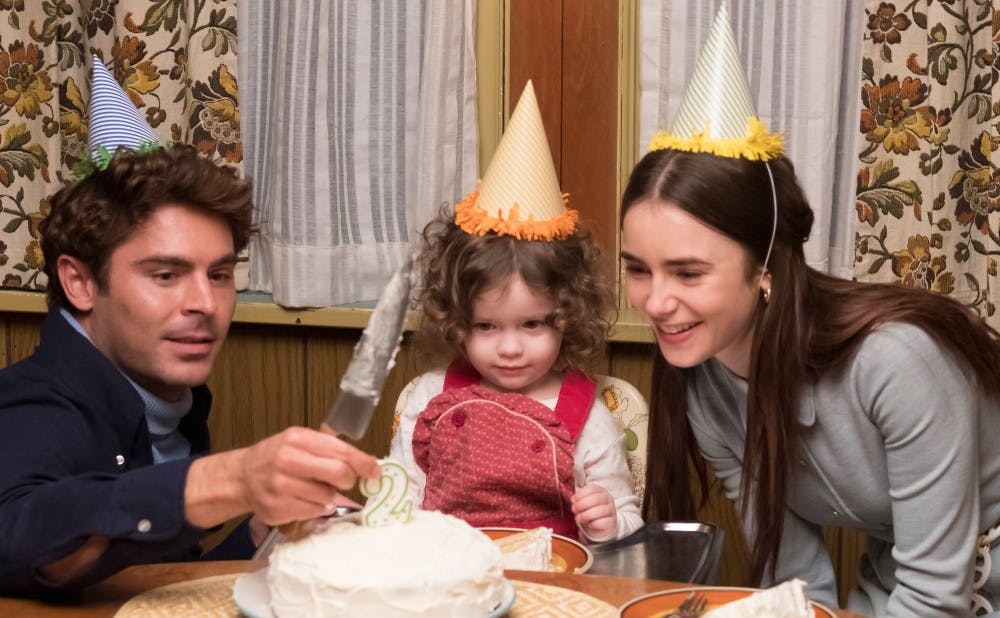Our culture has always been fascinated by serial killers. Since the phenomenon solidified in the ‘70s, there has been no shortage of killers in cinema (see: "American Psycho," "My Friend Dahmer" or really any David Fincher film); there are even several best serial killer movies lists online. There’s not anything wrong with this natural fascination, but the way these killers’ stories are told on the screen matters.
Following the release of "Extremely Wicked, Shockingly Evil and Vile," a film about the life of serial killer Ted Bundy, many viewers expressed their discomfort at the way Bundy’s story was handled. The film premiered at Sundance just days after Netflix’s release of "The Ted Bundy Tapes," a docuseries which also focuses on the paradox of Bundy’s charm and homicidal tendencies. The obsession with this idiosyncrasy is understandable and admittedly interesting, but the representation of Bundy in "Extremely Wicked" was distasteful, and only perpetuated perverse tropes that have real consequences.
The film received a great deal of criticism on the choice to star Zac Efron as Bundy, mostly because of his typecast as the harmless hunk in cutesy movies with large female audiences. It wasn’t necessarily just Efron’s striking looks that upset critics, but the overall characterization of Bundy, which the "High School Musical" star did a fantastic job of portraying. Rather than holding Bundy accountable as the brutal murderer and rapist of at least 30 young women, the film was framed as a biopic of an endearing outlaw — who just so happened to have homicidal tendencies — and his unfortunate demise.
The trailer alone conveys this tone, with its obnoxious guitar riffs and misguided taglines that seem to be gearing the viewer up for an epic blockbuster adventure. Rather than portraying Bundy as the cruel killer he was, the film romanticizes the story of the clean-cut good ‘ol boy whose potential is cut short by a few perverse, out of character actions. "Extremely Wicked" spends almost no time on Bundy as a killer, approaching young girls strategically and ending their lives brutally, and instead fixates on Bundy’s life as a loving husband and father, his cheeky performances in court and his general eccentric magnetism. Although these were certainly aspects of his story and should be considered as a key piece in the analysis of his story, they shouldn’t be included at the expense of his more important legacy as a killer.
Rather than leaving with a sense of indignation and disgust, when I left the theater I just felt confused. Deep down, I was obviously angry, but it was almost like I didn’t know where to put it. I left feeling bad for this vague killer played by a familiar actor, because he had been painted as this misunderstood man on death row, rather than feeling disturbed and grieving for the victims and their families.
This portrayal is harmful because, rather than focusing on the destruction Bundy caused countless girls, we’re focusing on the impact it had on the killer’s life. The movie's treatment of Bundy reflects our own greater culture’s unwillingness to punish men for their actions, even actions as severe as murder. This trend teaches boys that all wrongdoing will be excused by mental health or quirkiness, and teaches girls that they should endure the effects of these actions, especially if the perpetrator is attractive or charming. These imbalanced expectations don’t always lead to murder, but more common crimes like sexual assault and rape.
"Extremely Wicked" didn’t err in its choice to tell the story of a killer, but in its decision to characterize him in such a forgiving way. If we are constantly fed stories of violent men in quasi-heroic, irreproachable roles, we are more likely to continue to construct dangerous people into these false narratives, leaving victims without support, and continuing the cycle.
Get The Chronicle straight to your inbox
Signup for our weekly newsletter. Cancel at any time.

